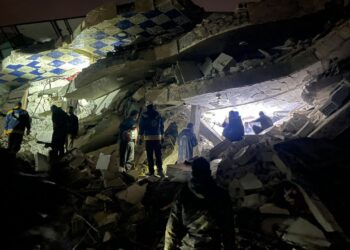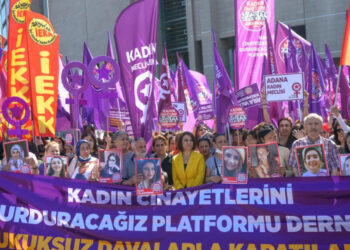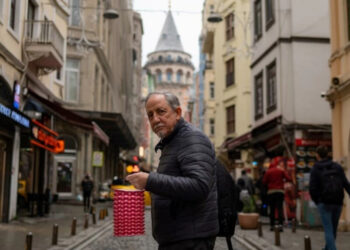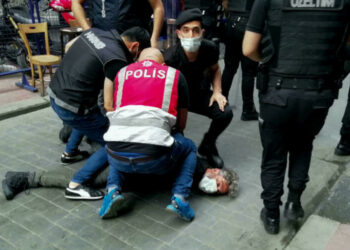In a new government project launched during the state of emergency, 386 neighborhood watches will begin on Monday to scout streets and their neighborhood during nights to provide security in Istanbul, Turkey’s largest city.
Turkish media released photos of newly graduated cadets who received training by police. The new project has sparked ongoing political controversy over the true nature and scope of neighborhood watches’ mission.
The opposition harbors genuine doubts over the new force in neighborhoods and accuses the government of building its own force for political purposes.
The policy was not without precedents. During the 1960s and 1970s when rapid economic progress and urbanization saw millions of people moving to cities from rural areas in mass internal migration waves, city administrations set up a similar mechanism to provide security during nights against crime and burglary.
Hundreds of thousands of newcomers formed shanty neighborhoods on the outskirts of Istanbul, and sometimes built new residential areas adjacent to affluent districts, thus exposing vivid socio-economic disparity among social classes. The neighborhood watches later were tasked with deterring possible break-ins and burglaries.
The practice lasted longer in several parts of Anatolia, while deadly political violence gripped metropolitan cities in the late 1970s, contributing to the termination of the watch system.
What forms the core of the opposition’s anxiety is the authority and power given to new people who will serve as citizen guards in neighborhoods.
During a ceremony to celebrate the first graduates on Saturday, Istanbul Police Chief Mustafa Caliskan appeared to be encouraging new guards, or watches, to use their guns when they deem it necessary.
“Do not hesitate to use your guns,” the police chief said, “in cases when your rights allow you to do so.”
At least 8,320 volunteers applied to Istanbul Police Department for limited numbers of posts in February when the government first launched the program. In May, it took an official form, with the government’s decree was published in Official Gazette.
Of those applications, the police department only accepted 700 of them. In the first phase, 386 candidates completed their training that included close combat techniques by Police Special Forces, use of firearms and other types of training normally given to Turkey’s police force. On Monday night, they will begin to work in neighborhoods.
Police Chief Caliskan said Istanbul was chosen as a city to test the adequacy and functionality of the program. He called the guards as “Night Eagles,” and pledged to work to make the “Night Eagles” eagerly embraced by the society.






















